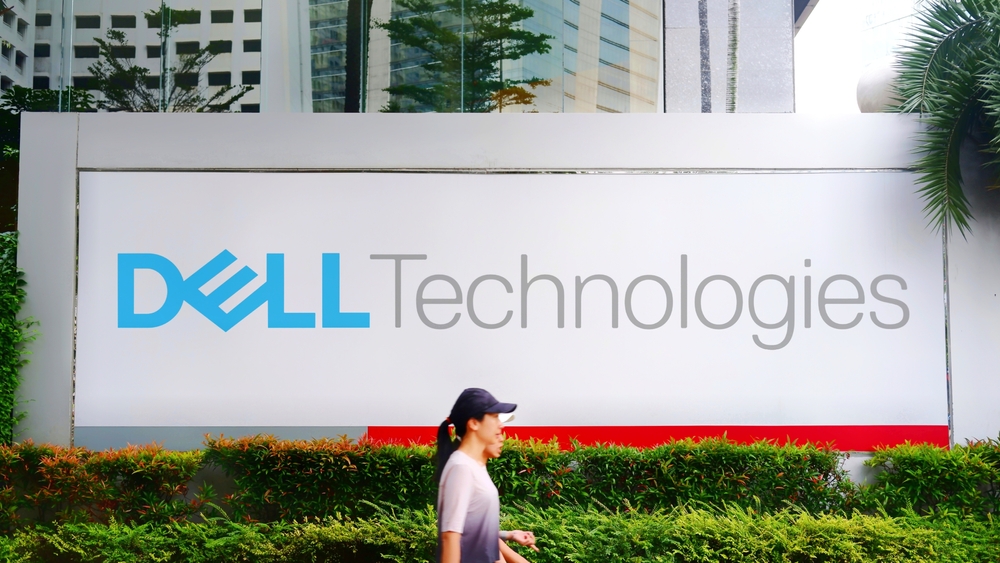The Omikron mutation, which has spread to the world from South Africa, is a cause for concern. While on Monday Pfizer boss Scott Gottlieb said that with three doses of vaccination, the patient would have solid protection against the new mutation, the director of the American company Moderna does not think so.[1] The stock exchanges have already responded to his words. Oil and stock prices went down, both in Britain and in Germany, France and Hong Kong.[2]
Both Moderna and Pfizer, which have become major vaccine suppliers in the world, are now working on vaccines against the new Omikron mutation. According to the World Health Organization, this mutation represents a "very high risk". Scientists in other vaccination colossi, such as AstraZeneca, Johnson & Johnson, Sinovac Biotech and others, are also working on a new variant of the vaccine that would protect patients from Omicron.
Researchers and health officials have yet to determine whether the variant, first identified in South Africa, is resistant to current vaccine structures, and the World Health Organization has warned that assessing its full potential may take "several weeks".
How can Omikron affect the market?
COVID-19 caused confusion in the economy and the stock market experienced one of the sharpest declines in history in 2020 during the early stages of the pandemic. Since then, we have been able to monitor the different reactions of markets to the increasing mutations and the associated risks. How the situation will develop with regard to the expansion of Omikron is still questionable. Researchers are constantly researching new data that should bring a better overview of the situation.
The stock market can be unpredictable, so it is almost impossible to say for sure how it will react. As the number of new COVID-19 cases increased in July and August due to the spread of the delta variant, the S&P 500 index continued to rise for the most part.[3]
It is not possible to say with certainty how Omikron will affect the market. While we may see a decline in the future, there is also a chance that the market will continue to grow.[4] And no matter what happens, it will be difficult to determine exactly what factors caused the market to move.
How are pharmaceutical companies doing?
Covid-19 vaccine stocks have done well over the past month. Moderna (NASDAQ: MRNA) and Pfizer (NYSE: PFE) - two leading suppliers of the Covid vaccine - have seen stock prices rise virtually every month since early April.[5] This is also true for Pfizer (PFE), while Johnson & Johnson (JNJ) and Novavax (NVAX) were also active.
Vaccine manufacturers' warnings about the new Omikron variant have caused stocks to fall in recent days.[6] But for now, at least Moderna and Pfizer are holding on. Specifically, Moderna has said it may have a vaccine ready in just a few months to fend off the new variant.
Moderna’s shares were hit by a correction
Earlier this month, however, Moderna shares fell 57% from a high after the company issued an unsatisfactory quarterly report.[7] Looking ahead to the last months of the year, Moderna said it sees sales of its coronavirus mRNA-1273 vaccine at $15 billion to $18 billion, down from its previous forecast of $20 billion based on signed contracts, amid broader manufacturing issues. According to Moderna, revenues for fiscal year 2022 would probably be in the range of $17 billion to $20 billion.
Moderna made a profit of $7.70 per share in Q3, up from a loss of 59 cents per share in the same period last year. The group's revenue also failed to meet analysts 'estimates, reaching $4.969 billion, compared to analysts' estimates of $6.2 billion.
Moderna shares fell 17.2% at the start of trading after the announcement of profits, which represents USD 285.80 per share, thanks to which the company's shares are still gaining 173.2%.[8]
Paul Burton, Moderna's CMO, told the BBC on Sunday that the new vaccine could be ready "in large quantities" early next year if the Omikron variant proves resistant to current doses.[9]
Results of some are improving due to vaccination
Last week, Pfizer reported positive Q3 results with revenue of $24.1 billion, compared to our forecast of $23.5 billion and a consensus estimate of $22.6 billion. The company's final result of $1.34 per share on an adjusted basis increased by a solid 133% year-on-year and compared to the analysts' forecast of $1.35 and a consensus estimate of $1.08. The Covid-19 vaccine continued to be a key growth driver with sales of $13 billion during the quarter.[10]
Covid-19 vaccine sales are expected to decline with increasing global vaccination rates, but Covid-19 oral pills could gain new revenue for Pfizer in the coming years. Pfizer's earnings growth is expected to outperform previous analyst estimates in the coming years.[11]
Pharmaceutical companies are also looking for other solutions
Johnson & Johnson (JNJ): Unlike most other vaccine candidates who are likely to require two injections, J&J focuses on a single dose vaccine. While the company had to suspend trials in mid-October after the volunteer's illness was reported, the company is now preparing to resume trials.
In addition, there is a possibility that vaccination against Covid-19 will be an ongoing process that will require regular booster doses, presumably with new formulations, to protect against new variants of the virus and potentially lowering immunity. The COVID booster injection is an additional dose of the vaccine given after the protection provided by the original injections began to decline over time. Both Pfizer and Moderna are working to develop booster doses of their vaccines, which could mean that vaccine manufacturers will have recurring revenues from what originally appeared to be a disposable vaccine product.[12]
________________________________________________________________________
[1] https://www.ft.com/content/27def1b9-b9c8-47a5-8e06-72e432e0838f
[2] Past performance is no guarantee of future results
[3] Past performance is no guarantee of future results
[4] Forward-looking statements are based on assumptions and current expectations, which may be inaccurate, or the current economic environment, which may change. Such statements do not guarantee future performance. They involve risks and other uncertainties that are difficult to predict. The results may differ materially from those expressed or implied in any forward-looking statements.
Past performance is no guarantee of future results
[5] Past performance is no guarantee of future results
[6] Past performance is no guarantee of future results
[7] https://www.thestreet.com/markets/moderna-stock-slides-on-q3-earnings-miss-covid-vaccine-sales-cut
Past performance is no guarantee of future results
[8] https://www.thestreet.com/report/get-report?ticker=MRNA
Past performance is no guarantee of future results
[9] https://www.thestreet.com/markets/moderna-stock-surges-as-drugmaker-sees-early-2022-omicron-vaccine
[10] https://www.thestreet.com/markets/moderna-stock-surges-as-drugmaker-sees-early-2022-omicron-vaccine
Forward-looking statements are based on assumptions and current expectations, which may be inaccurate, or the current economic environment, which may change. Such statements do not guarantee future performance. They involve risks and other uncertainties that are difficult to predict. The results may differ materially from those expressed or implied in any forward-looking statements.
Forward-looking statements are based on assumptions and current expectations, which may be inaccurate, or the current economic environment, which may change. Such statements do not guarantee future performance. They involve risks and other uncertainties that are difficult to predict. The results may differ materially from those expressed or implied in any forward-looking statements.



